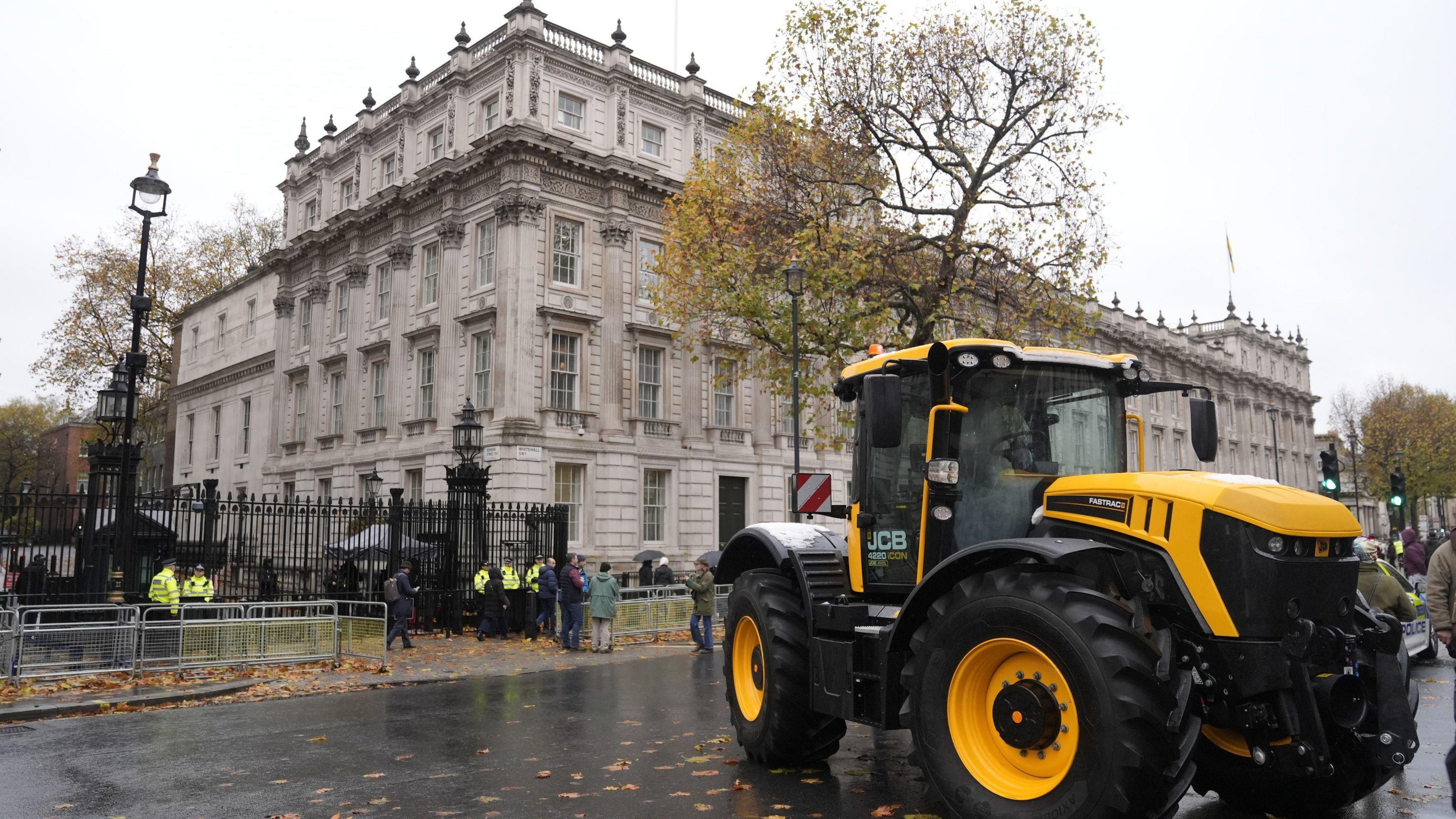Call to exempt 'working farms' from inheritance tax

- Published
The Liberal Democrats have called for the government to exempt "working farms" from its inheritance tax plans.
Under plans announced in the Budget, inherited agricultural properties worth more than £1m will be subject to inheritance tax at 20% from April 2026 - having previously been exempt. There is a higher threshold of £3m for couples passing on their farms.
The plans have sparked a wave of protests from farmers, but Labour argue the change is needed to discourage people avoiding tax by buying up agricultural land.
During a debate in the House of Commons, Lib Dem rural affairs spokesman Tim Farron said a "working farm qualification exemption" would target the policy directly at tax-avoiders.
How many farms will be affected by Budget tax rises?
- Published10 December 2024
Farming tax row - BBC Verify on which figures are more reliable and why
- Published22 November 2024
How are the inheritance tax rules changing?
- Published19 November 2024
Farron, who represents Westmoreland and Lonsdale, in Cumbria, said: "Farmers are struggling, often with their mental health.
"The isolation you feel when you are farming, and you have farmed a valley, let's say, for generations and your family have, and you might be the one who ends up losing the family farm, it's utterly, utterly devastating."
Allowing "not active farmers to be under the HMRC microscope instead" would be far preferable to what we have got." Farron said.
The Treasury says around 500 estates a year are expected to pay inheritance tax under the changes. But campaigners say up to 75,000 of the UK's farms could be affected.
Treasury Minister James Murray argued the government were confident in their estimates and the much higher figures were based on farm values which do not "tell you what the inheritance tax liability would be".
Murray said the government "could not justify leaving the situation unchanged" due to the "urgent need to repair the public finances”.
But he argued Labour were committed to supporting the UK's farmers, pointing to a £5bn investment in farming and land management in England over the next two years announced in the Budget "which will help restore stability and confidence in the sector".
The debate was organised by the Conservatives, who are calling for the government to scrap the policy.
The Tory motion was voted down, but Labour MP for Penrith and Solway, Markus Campbell-Savours, used the debate to put pressure on his party to change course.
During the election, he said he had read "what I thought were assurances" that there were no plans to change the inheritance tax exemption on agricultural property.
"On this basis, I reassured farmers in my constituency that we would not. Now, I'm simply not prepared to break my word," he said.
Conservative Shadow environment secretary Victoria Atkins said her party had tabled its motion to give Labour MPs representing rural seats "time to reflect and consider whether they can continue to support this vindictive tax".
After thousands, including TV presenter Jeremy Clarkson, protested against the changes outside Parliament last month, Atkins urged Labour to "show humility and compassion" and look into why so many believe the policy is wrong.
During his speech, Murray had argued changes "will make land prices more affordable for farmers" as fewer people buy up land to avoid paying inheritance tax.
But Conservative MP Sir Geoffrey Clifton-Brown told the Commons that "foreign investors and hedge fund managers" would most likely buy up the land, gaining the most from the new inheritance tax rules.
"They will not have generations of knowledge to work this land and will likely take prime arable land out of production, as they could possibly make more money from alternatives," the MP for North Cotswold said.
During the debate, Labour MP Maya Ellis suggested bringing more farmers into paying inheritance tax would increase their profits overall - with reduced energy prices and a "better" health service funded by the extra tax take.
The MP for Ribble Valley said "we need to make our tax structures work better".